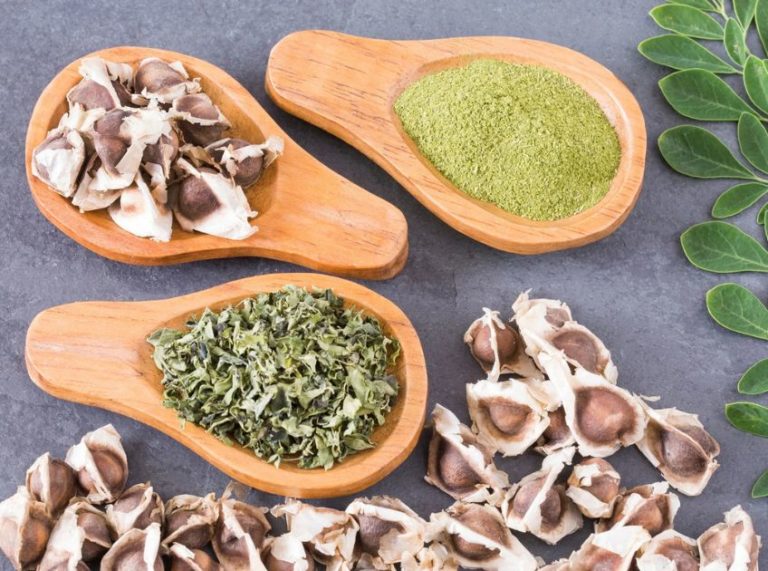
Important: This article is for informational purposes only. Please read our full disclaimer for more details.
Acai berries are small, round-shaped, deep purple berries about the size of a grape. They are indigenous to the rain-forests of the Amazon. They are hailed for its high nutritional value. They are rich in antioxidants, amino acids and omega fatty acid which prevent aging.
They are also known to boost energy and strengthen our immune system. Surprisingly, these little berries are richer in protein than an egg.
Many research studies reveal that they can manage blood sugar and are beneficial to lower cholesterol level. It is due to these benefits that they have gained popularity as a super-food in the world.
People include this fruit in their diet to flush out toxins from their body, to lead a healthy organic life.
Like the two sides of a same coin, these berries too have a list of side effects one needs to be aware of before making it a customary element in his/her diet.
Article Contains
- Allergies
- Not Safe For High Blood Pressure Patients
- Liver Inflammation
- Not Safe For Pregnant And Lactating Women
- Gastrointestinal Problem
- High In Calories
- Not Safe For Blood Sugar patients
- Toxin Flush: A Myth
- Interacts With Chemotherapeutic Medications
- Not Safe For People Who Take Blood Thinning Medication
- Transmits Chagas’ Disease
- Can Acai Berry Cause Stomach Problems ?
- Does Acai Berry Make Your Poop Dark?
11 Acai Berry Side Effects
1. Allergies
People who are allergic to Arecaceae family of plants like palms and dates should avoid acai berries. They can result in breathing problems, hives, rashes, swelling of the tongue, mouth or lips. People who have pollen allergies should also avoid these berries as they might aggravate the allergy.(1)
2. Not Safe For High Blood Pressure Patients
Though acai berries are known to manage blood pressure, but various research studies have revealed that people having high blood pressure should avoid acai berries as it might increase the blood pressure level.
If there is a drastic increase of blood pressure level, it can prove fatal to an individual.(2)
3. Liver Inflammation
Consumption of acai berries is therapeutic for the liver. But overdosing of acai berries can cause liver inflammation. It is because of Echinacea which is a herb used in acai berry supplements which affects the liver.
This can even lead to liver damage. Moreover, acai berries alters the proper functioning of enzymes released by the liver which can result in an increase in the secretion of bile.(3)
4. Not Safe For Pregnant And Lactating Women
Well, acai berries are apparently good for pregnant women. But since an acai berry supplement is made up of various ingredients, it can prove unsafe for your child. If you suffer from gestational diabetes, it is safe to keep away acai berries from your diet.
As acai berries can cause allergies and are high in calories, it is not recommended for moms to be.(4)(5)
5. Gastrointestinal Problem
Acai berries are also known to be the cause of several gastrointestinal problems like stomach ache, bloating, liver inflammation etc. excessive amounts of intake of acai berries can lead to accumulation of vitamins and protein which even cause diarrhea.
6. High In Calories
Acai berries are high in calories and rich in proteins. So it can give us instant strength and stamina. But when taken in large quantities, it can lead to weight gain and higher body fat percentages. It can increase the chance of diabetes and heart disease.
[ Read: Shocking Side Effects Of Goji Berries ]
7. Not Safe For Blood Sugar patients
Acai are sweet in taste and hence it is not recommended for blood sugar patients. Some might be misguided by the fact that they are beneficial to diabetic patients owing to its low carbohydrate content, But it is not so.
The supplements of acai berries are also not good for diabetic patients.
8. Toxin Flush: A Myth
Most stores selling acai berries use this term ‘toxin flush’ to lure consumers into buying. But one must be aware that most acai berry supplements can lead to gradual building up of plaque and toxins in the body. This can lead to acne, candida and even fatigue.
9. Interacts With Chemotherapeutic Medications
Acai berries are rich in anti-oxidants. So they can interact with the radiation and chemotherapeutic drugs. So patients undergoing chemotherapy should be warned against the consumption of not only of acai but also other berries.
10. Not Safe For People Who Take Blood Thinning Medication
Doctors have often prescribed acai berries to the ones who suffer from cardiovascular diseases as it prevents the formation of blood clots and promotes better functioning of the heart. It is because of its blood thinning properties.(6)
So, people who already take blood thinning medication like warfarin should avoid this fruit as it can be responsible for further thinning of blood causing heavy bleeding.
11. Transmits Chagas’ Disease
Chagas’ disease is a parasitic disease caused by Trypanosoma cruzi. It is also known as trypanosomiasis. It has been proven that acai berry aids in oral transmission of this disease by the triatomine’s stools on the fruit or insects accidentally crushed during the process of making juice or food supplements.(7)
Besides all these, the other side effects include headache, reduced vision, partial deafness and respiratory troubles. People taking drugs like aspirin and aleve should also refrain from taking this fruit or its supplements as there are chances that they might interact with each other.
Though it is not recommended for people who does not want weight gain, it is also not prescribed for under weighed individuals as acai berries as it diminishes appetite and hence induces weight loss.
Acai berries are, undoubtedly, one of the most nutritious fruits which has gained the status of ‘superfood’. However, it is seen that the side effects occur more when food products made out of acai berries and food supplements are eaten.
Can Acai Berry Cause Stomach Problems ?
Some people experience stomach problems after eating acai berries. The most common symptoms are nausea and vomiting. Diarrhea, bloating, and gas may also occur. These symptoms are usually mild and resolve on their own within a few days.
However, some people may experience more severe symptoms, such as abdominal pain and cramping.
If you experience any of these symptoms after eating acai berries, it’s important to see a doctor for treatment. Acai berries are a healthy food, but they can cause stomach problems in some people.
If you’re concerned about how acai berries will affect your stomach, talk to your doctor before eating them.
Does Acai Berry Make Your Poop Dark?
There is no definitive answer to this question as everyone’s digestive system reacts differently to different foods.
However, there have been some reports of people experiencing black stools after consuming acai berries. It is believed that this is due to the high concentration of anthocyanins in acai berries, which can cause changes in stool color.
If you experience black stools after consuming acai berries, it is recommended that you speak to a healthcare professional to rule out any other underlying causes.
Hence, if you are interested in including acai berries in your regular diet, try to consume the fruit in its natural form. And since most side effects are found when they are consumed to excess, so keep consult a dietitian or a herbalist to know the correct dosage of these berries and enjoy its goodness!
You Might Also Like:
- What Are the Benefits of Eating Fruits Daily?
- Side Effects of Avocado You Should Know Right Now
- Bitter Melon Side Effects You Didn’t Know About
- Yoga for Immunity: 5 Effective Yoga Poses To Boost Your Immune System
- 17 Benefits of Blueberries for Health, Skin and Hair
- 12 Serious Side Effects of Goji Berries You Should Know
- 10 Best Foods to Lower High Blood Pressure Naturally
- The 10 Best Foods To Eat With PCOS
- 10 Best Foods for Hair Growth You Should Include in Your Diet
- Fruits for Weight Loss – Top 12 Fruits To Eat To Lose Weight Quickly
Image:- 1

















